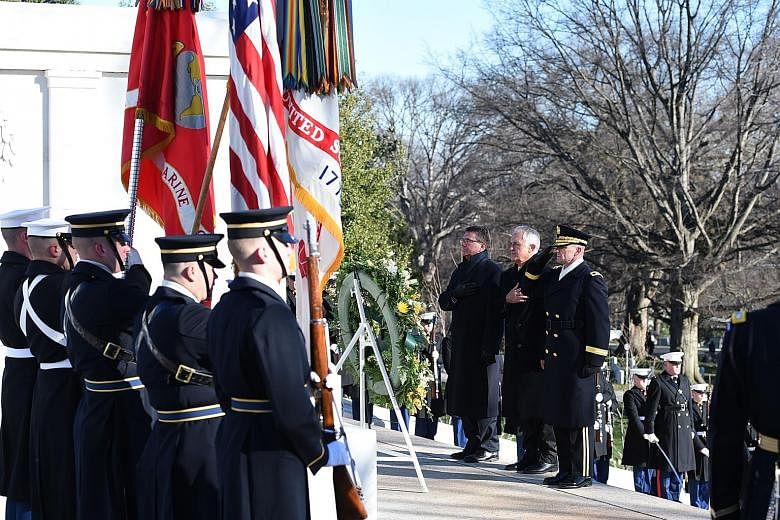Australia is weighing a more assertive response to China's territorial claims in the region, with growing calls for the navy to patrol within 12 nautical miles of contested islands in the South China Sea.
The proposed freedom of navigation exercise was reportedly discussed by Australia's Prime Minister Malcolm Turnbull during talks last month at the White House with United States President Barack Obama.
A US navy warship conducted an exercise last Saturday and sailed within 12 nautical miles of Triton Island, which is claimed by China as well as Vietnam and Taiwan.
China claims most of the South China Sea, which is part of vital global trade routes. The Philippines, Vietnam, Malaysia, Taiwan and Brunei have overlapping claims.
Canberra was reportedly given advance warning of last Saturday's manoeuvre and later expressed "strong support".
Australia has deployed air force surveillance aircraft to patrol disputed waters in the South China Sea, but has yet to conduct a naval exercise.
The chief of the Air Force, Air Marshal Leo Davies, said this week that Australia has "slightly increased" the number of flights but they are being increasingly challenged by Chinese forces.
The Chinese military issues radio broadcasts to warn the Australian aircraft they are close to Chinese territory and should move away, he told reporters in Canberra on Wednesday.
In recent months, Australian ships have reportedly been edging closer to China's artificial islands.
According to local media reports, the federal Cabinet's National Security Committee has been briefed on possible options for a freedom of navigation exercise but has not yet decided whether or when to conduct such an operation.
Following last Saturday's US patrol in the Paracel Islands, Australia's Defence Minister Marise Payne said Australia supported unimpeded trade and freedom of navigation in the South China Sea. About 60 per cent of Australian exports pass through the sea, she said.
"Australia continues to co-operate closely with the United States and other regional partners on maritime security," she added.
Analysts have mixed views on whether Australia should conduct a naval patrol to assert freedom of navigation.
Some said it was vital for Canberra to send a clear signal that it objects to Beijing's "maritime land grab".
Others have said a patrol would be provocative and Australia should instead push for a diplomatic response, possibly the creation of an international court to resolve the various territorial claims.
An Australian expert on international security, Professor Alan Dupont, from the University of New South Wales, urged Australia to conduct regular low-key sea and air patrols to deliver a clear message to Beijing.
Noting that they should be done unilaterally rather than jointly with the US or Japan, he wrote in The Australian: "We don't need to hide behind another country or gratuitously feed China's already well developed containment paranoia."
A former Australian defence official, Mr Greg Raymond, a research associate at the Australian National University, said patrols were not the only way for Australia to express concern about China's actions, especially since there is little certainty about the legal validity of the competing claims in the South China Sea.
"We need to push all claimants towards an independent court of impartial judges to establish with finality the legality of various claims, especially if they can't find any other way to reduce tensions," he wrote on the Lowy Institute's Interpreter blog on Jan 22.


